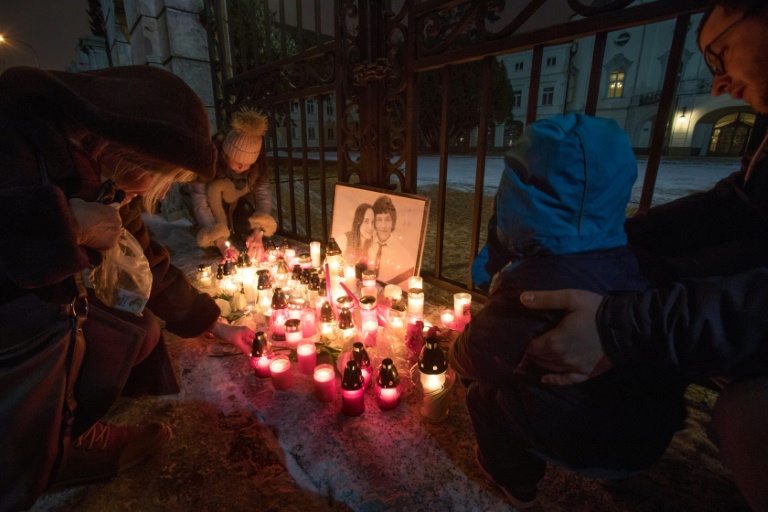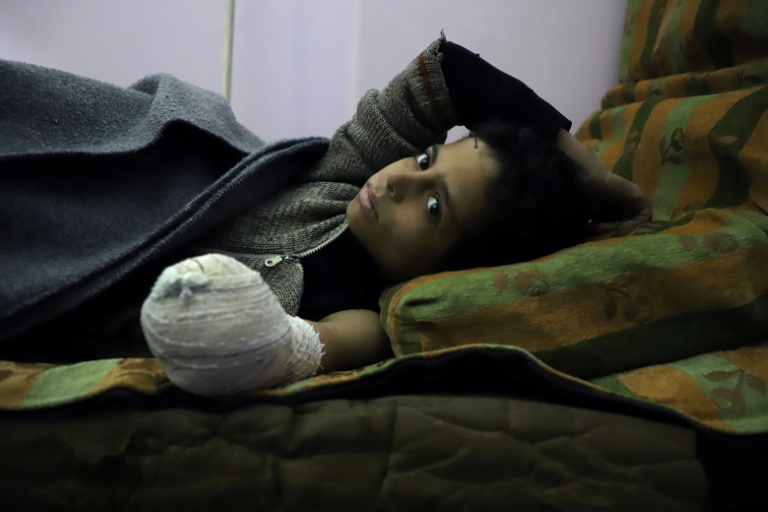A global media watchdog on Friday warned E.U. leaders against undermining the security of journalists in the wake of the murder of a Slovak investigative reporter gunned down in his home.
Jan Kuciak, who had been probing alleged high-level political corruption in Slovakia linked to the Italian mafia, was found shot dead alongside his fiancee Martina Kusnirova on Sunday.
His death came just months after journalist Daphne Caruana Galizia was killed in a car bombing in Malta after exposing crime and corruption on the Mediterranean island.
Shocked by the murder of a journalist in the EU. No democracy can survive without the free press, which is why journalists deserve respect and protection. Our thoughts go out to the loved ones of Ján Kuciak & his girlfriend Martina Kušnírová. Justice must be served.
— Frans Timmermans (@F__Timmermans) February 26, 2018
Investigators in both murders are probing links to organised crime syndicates, but Reporters Without Borders (RSF) said a number of E.U. leaders could also be endangering members of the media through public slurs.
Some European politicians, including government leaders, have sustained and even created an “appalling climate for journalists,” Christophe Deloire, RSF secretary-general told AFP after talks with Slovak Prime Minister Robert Fico in Bratislava.
“European leaders have a responsibility to defend journalism and not to weaken it,” he added.
Mr. Deloire also said he asked Mr. Fico, a leftist who does not shy away from using populist rhetoric, to “clearly express his regrets” for having publicly insulted journalists.
“Insulting journalists, denials of the legitimacy of journalism by high-level politicians are dangerous to journalists,” he added.
Mr. Fico once told journalists they were “dirty, anti-Slovak whores” and used terms like “plain, silly hyenas” and “slimy snakes” to describe the media.
But in the wake of Mr. Kuciak’s killing, Mr. Fico has vowed his government would “protect freedom of speech and the safety of journalists.”
‘Democratic Crash’?
The RSF chief also pointed to other central European leaders like Czech President Milos Zeman and governing parties in Hungary and Poland as creating a climate of hostility towards the media that undermines the security of journalists and press freedom.
Staunchly pro-Russian, Mr. Zeman once dubbed journalists “manure” and “superficial” before telling Russian President Vladimir Putin in China last May that “journalists should be liquidated.”
“The Czech president last year showed up at a press conference with a toy Kalashnikov in his hand labelled ‘for journalists’,” Mr. Deloire said of an incident last October.
He also insisted that ruling parties in Poland and Hungary “have reduced pluralism” in public broadcasters, turning them into them mouthpieces for governing politicians.
“It is the responsibility of all European countries to avoid a situation where Poland and Hungary set a bad example for the rest of Europe,” he added.
“Investigative journalists who probe corruption, tax evasion or trafficking are threatened and unfortunately there are more and more politicians, heads of government who sometimes weaken investigative journalism,” Mr. Deloire told AFP.
He added that after the murder of Galizia in Malta, “this is a new predictable murder of a journalist and we have to avoid a democratic crash in Europe.”
Reporters investigating the same story as Mr. Kuciak said they have obtained police protection since his shooting.


















